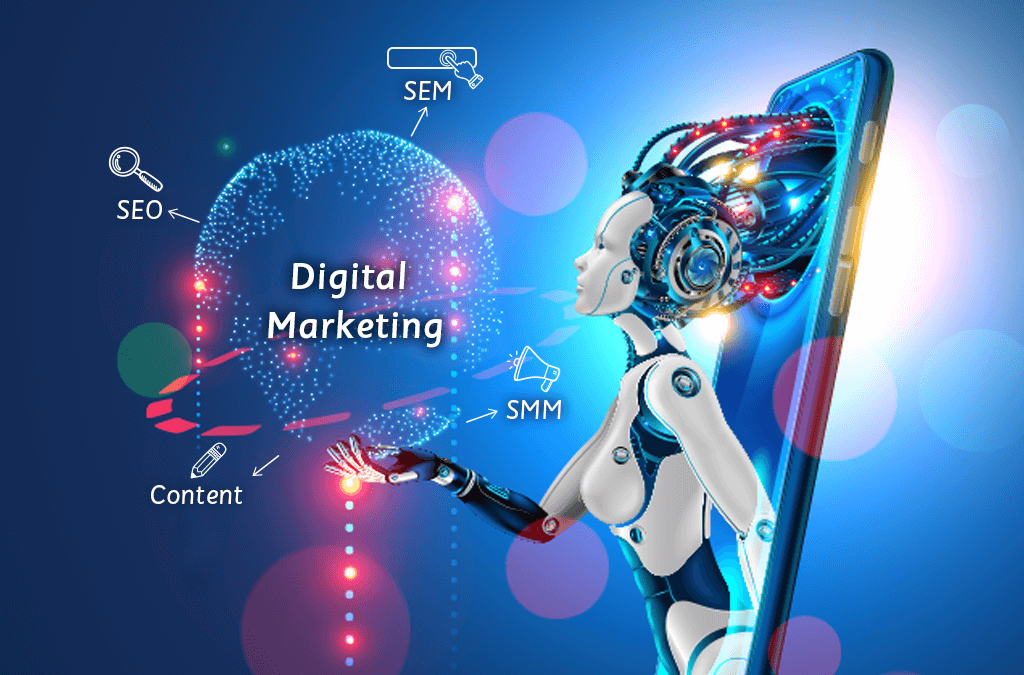The digital marketing world has changed rapidly over the past few years, with artificial intelligence (AI) emerging as a game-changer for how brands engage with customers. From personalized ads to predictive analytics, AI is transforming marketing strategies, helping businesses connect more meaningfully and efficiently with their audiences.
What is AI in Digital Marketing?
AI, or artificial intelligence, refers to machines or software that can simulate human intelligence to perform tasks such as learning, reasoning, and problem-solving. In digital marketing, AI enables businesses to automate tasks, personalize customer experiences, and analyze vast amounts of data quickly.
Why is AI Important in Digital Marketing?
AI plays a critical role in modern digital marketing because it allows for greater personalization, which is a key driver of customer loyalty. Marketers can analyze consumer behavior, preferences, and trends to tailor marketing messages and offers that resonate on a more personal level. With AI, companies can:
- Save time and resources by automating routine tasks.
- Deliver targeted ads and content.
- Predict consumer behavior to optimize marketing strategies.
- Improve the overall customer journey.
How is AI Used in Digital Marketing?
Here are some common ways AI is used in digital marketing:
1. Personalized Recommendations
AI algorithms analyze customer data—such as browsing history, purchases, and preferences—to make product or content recommendations. Think of platforms like Amazon suggesting products based on past purchases or Netflix recommending shows.
2. Chatbots and Conversational AI
Chatbots powered by AI provide instant customer support, 24/7. They can answer questions, make recommendations, and even handle transactions, enhancing the customer experience and freeing up human resources for more complex tasks.
3. Predictive Analytics
AI can analyze historical data to predict future consumer behaviors and trends. This predictive capability allows marketers to make data-driven decisions, allocate budgets more effectively, and launch campaigns at optimal times.
4. Programmatic Advertising
AI automates the process of buying and selling ads in real-time. Programmatic advertising helps ensure ads reach the right audience at the right time with the right message, improving the efficiency of digital ad spending.
5. Content Creation
AI-powered tools like copywriting assistants and content generators can create blog posts, social media captions, and more. While human creativity remains irreplaceable, these tools can speed up content production and provide valuable assistance.
6. AI-Powered SEO Tools
SEO tools powered by AI help identify keyword opportunities, analyze competitor strategies, and provide actionable insights to improve search rankings. AI can optimize website content to match search intent better, driving organic traffic.
Common Questions About AI in Digital Marketing
1. Can AI Replace Human Marketers?
No, AI cannot replace human marketers entirely. While it can automate repetitive tasks and provide data-driven insights, the human touch is crucial for creativity, strategy, and building relationships. AI works best when combined with human expertise.
2. Is AI Expensive for Small Businesses?
Not necessarily. Many AI tools are scalable and offer solutions tailored to businesses of different sizes. Free or low-cost AI-driven marketing platforms can provide significant value without breaking the bank.
3. How Do I Implement AI in My Marketing Strategy?
Start by identifying repetitive tasks that can be automated (e.g., scheduling social media posts). Consider using AI-driven tools for customer segmentation, content recommendations, or data analysis. Investing in AI gradually ensures you see its benefits before making a significant commitment.
Artificial intelligence is reshaping digital marketing, offering unparalleled opportunities for personalization, efficiency, and data-driven decision-making. From chatbots and predictive analytics to content creation and programmatic advertising, AI is helping brands engage with their customers more effectively than ever. As AI continues to evolve, it will undoubtedly play a pivotal role in defining the future of digital marketing.


